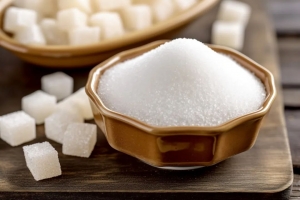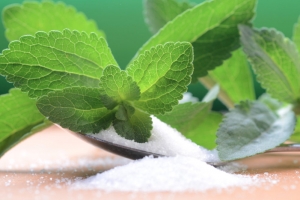
Monk fruit (Siraitia grosvenorii) is a natural sweetener that is often used as a sugar substitute. Its extracts typically contain non-nutritive sweetening compounds like mogrosides, which are not easily metabolized into glucose in the human body, thus having a minimal impact on blood sugar levels.
Diabetes Overview:Diabetes is a chronic condition characterized by high levels of glucose (sugar) in the blood. There are two main types:
Type 1 Diabetes: This occurs when the body cannot produce insulin due to the autoimmune destruction of the beta cells in the pancreas.
Type 2 Diabetes: This type is more common and occurs when the body does not use insulin effectively (insulin resistance), often associated with obesity and lifestyle factors.
Managing blood sugar levels is crucial for individuals with diabetes to prevent complications such as cardiovascular disease, kidney damage, nerve damage, and eye problems.
monk Fruit Extract for Diabetic Patients:For diabetic patients, using monk fruit extract as a sweetener is generally considered safe. The glycemic index (GI) of monk fruit extract is very low, meaning it does not significantly raise blood sugar levels. However, diabetic patients should be cautious with their dietary choices and follow the advice of healthcare professionals or dietitians to control overall carbohydrate intake.
In summary, if diabetic patients want to incorporate monk fruit extract into their daily diets, it is usually acceptable, but they should consult with medical professionals to ensure it fits their specific health needs. Additionally, while monk fruit extract itself may have a minimal effect on blood sugar, if the product contains other ingredients (such as added sugars), attention should be paid to the overall sugar intake.
 The regulation of Monk Fruit Extract (also known as Luo Han Guo extract) varies across different cou
The regulation of Monk Fruit Extract (also known as Luo Han Guo extract) varies across different cou
 Health Canada Approves Monk Fruit Extract as a Natural Sweetener
Health Canada Approves Monk Fruit Extract as a Natural Sweetener
 New Breakthrough in Allulose: A Healthier Sugar Alternative Gains Momentum
New Breakthrough in Allulose: A Healthier Sugar Alternative Gains Momentum
 Understanding Reb-M: The Benefits of a Next-Generation Sweetener
Understanding Reb-M: The Benefits of a Next-Generation Sweetener